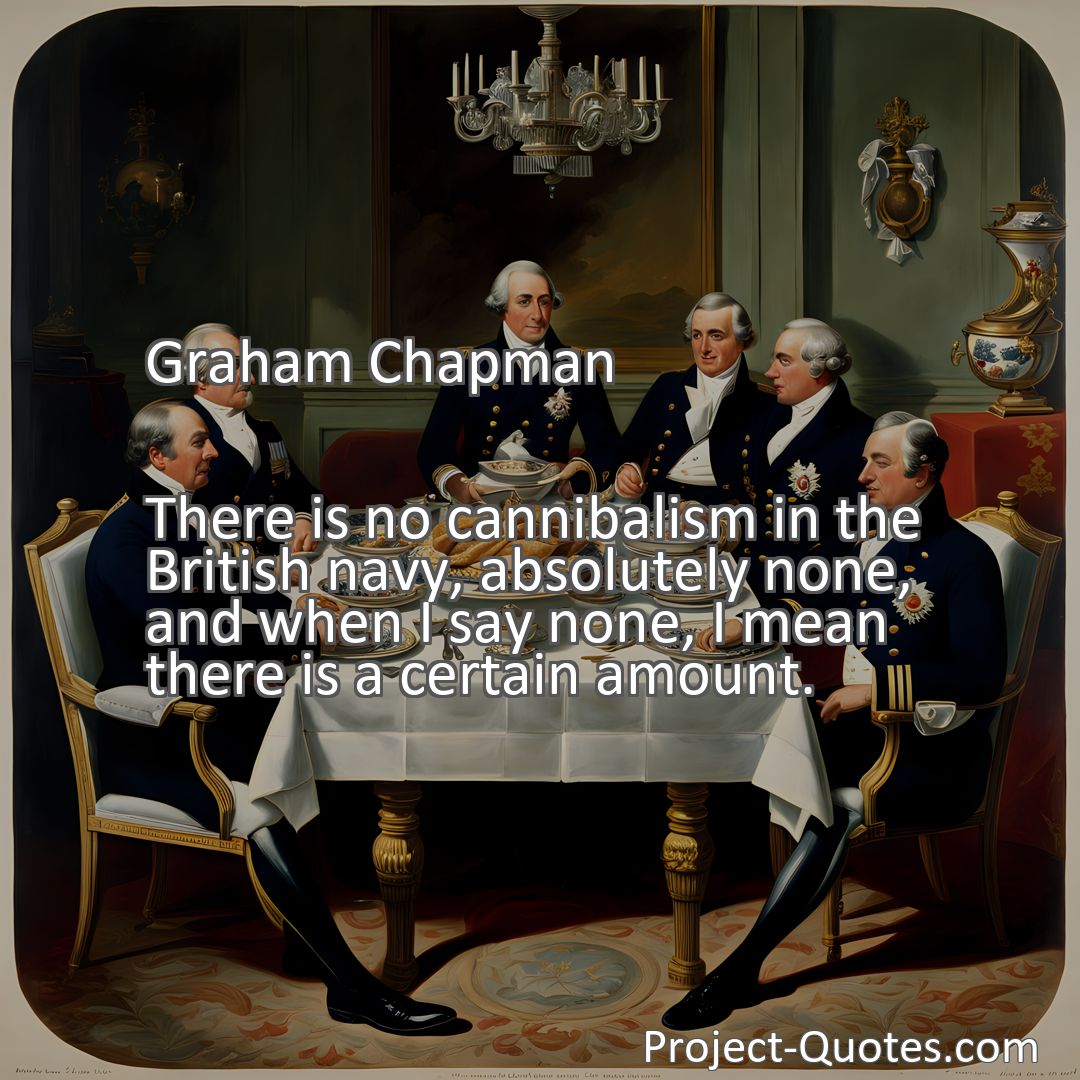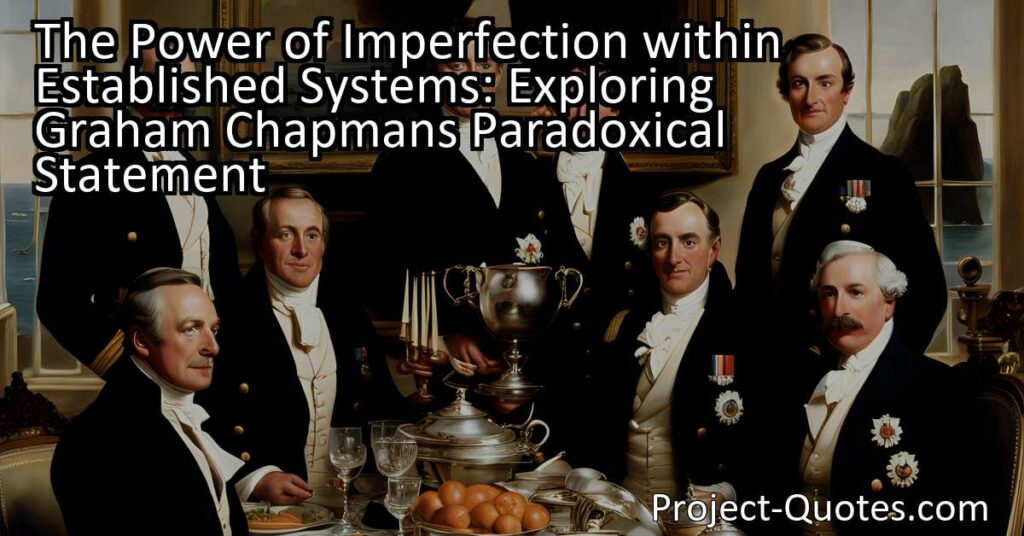Graham Chapman
The Power of Imperfection within Established Systems: Exploring Graham Chapman’s Paradoxical Statement reveals important insights about human nature, humor, and the nuances of language. Chapman’s ironic twist challenges our understanding of truth, highlighting the absurdity of taking assertions literally. This quote serves as a lesson in language comprehension and critical thinking, encouraging students to question apparent contradictions and fostering a more nuanced understanding of texts.
Table of Contents
- 1 There is no cannibalism in the British navy, absolutely none, and when I say none, I mean there is a certain amount.
- 2 Graham Chapman
- 3 Meaning of Quote – There is no cannibalism in the British navy, absolutely none, and when I say none, I mean there is a certain amount.
- 4 Freely Shareable Quote Image
- 5 Related
Graham Chapman, an English comedian, writer, actor, and one of the members of the iconic comedy group Monty Python, once said, “There is no cannibalism in the British navy, absolutely none, and when I say none, I mean there is a certain amount.” At first glance, this quote may seem puzzling and absurd, but upon closer examination, it reveals important insights about human nature, humor, and the nuances of language.
Humor often thrives on exaggeration and irony, and Chapman’s statement is a perfect example of this. By claiming that there is no cannibalism in the British navy, and then contradicting himself by saying there is a certain amount, Chapman masterfully plays with our expectations and challenges our understanding of truth. His ironic twist infuses absurdity into the statement while highlighting the absurdity of taking such assertions literally.
Chapman’s quote mirrors the techniques employed in Monty Python’s sketch comedy, which constantly pushed the boundaries of conventional humor. Through their surreal and unconventional sketches, Monty Python offered biting commentary on various social and political issues. By stretching reality to its limits, they provided a lens through which society’s contradictions, hypocrisies, and absurdities were exposed, inviting both laughter and reflection.
In the context of the quote, the British navy serves as a symbol for institutions and systems that claim absolute perfection or moral superiority. Chapman’s statement satirically implies that even within well-regarded institutions, imperfections and contradictions invariably exist.
The phrase “and when I say none, I mean there is a certain amount” is intentionally paradoxical, subverting our inclination to perceive statements as absolutes. It suggests that Chapman is aware of the darker aspects of the world, even if he presents them in a humorous and light-hearted manner. This acknowledgement of imperfection within established systems compels us to question blind faith in institutions and to maintain a healthy skepticism.
Beyond comedy and satire, this quote reveals a larger truth about language and communication. Words are inherently imprecise tools for expressing complex ideas and emotions. They can be interpreted differently by different individuals based on their experiences, context, and perception. Chapman’s deliberate ambiguity in the quote accentuates this inherent flaw in language and highlights the importance of critically analyzing statements instead of accepting them at face value.
In many ways, communication is an art of negotiation, with multiple layers of meaning flowing beneath the surface. Subtle nuances, intonations, and expressions all contribute to the overall message being conveyed. Therefore, language must be approached with a degree of skepticism, understanding that even seemingly unambiguous statements can be subject to interpretation and manipulation.
Furthermore, Chapman’s quote embodies the power of contradiction and ambiguity to provoke thought and engage an audience. It reminds us that a single statement can simultaneously contain elements of truth and falsehood, challenging us to think critically and question the information presented to us.
In the context of education and literacy, examining Chapman’s quote can serve as a powerful lesson in both language comprehension and critical thinking. Encouraging students to analyze the underlying meaning, explore alternative interpretations, and question apparent contradictions can enhance their reading and comprehension skills. It fosters a more nuanced understanding of authorial intent and encourages independent thinking by challenging students to go beyond the surface-level interpretation of texts.
Moreover, Chapman’s quote offers an opportunity to explore the concept of humor as a way to engage with serious subjects. Comedy enables us to tackle sensitive or uncomfortable topics indirectly, providing a safe space for discussion while simultaneously providing entertainment. By incorporating humor into the learning environment, teachers can encourage students to approach difficult subjects with greater ease, fostering empathy, and understanding.
Ultimately, Graham Chapman’s quote about cannibalism in the British navy is more than just a playful paradoxical statement. It represents a profound exploration of the complexities of language, the value of skepticism, and the power of humor to challenge established systems. By embracing the inherent contradictions and imperfections of language, we can foster a deeper understanding of the world and encourage critical thinking in both education and everyday life.
I hope this quote inspired image brings you hope and peace. Share it with someone who needs it today!


